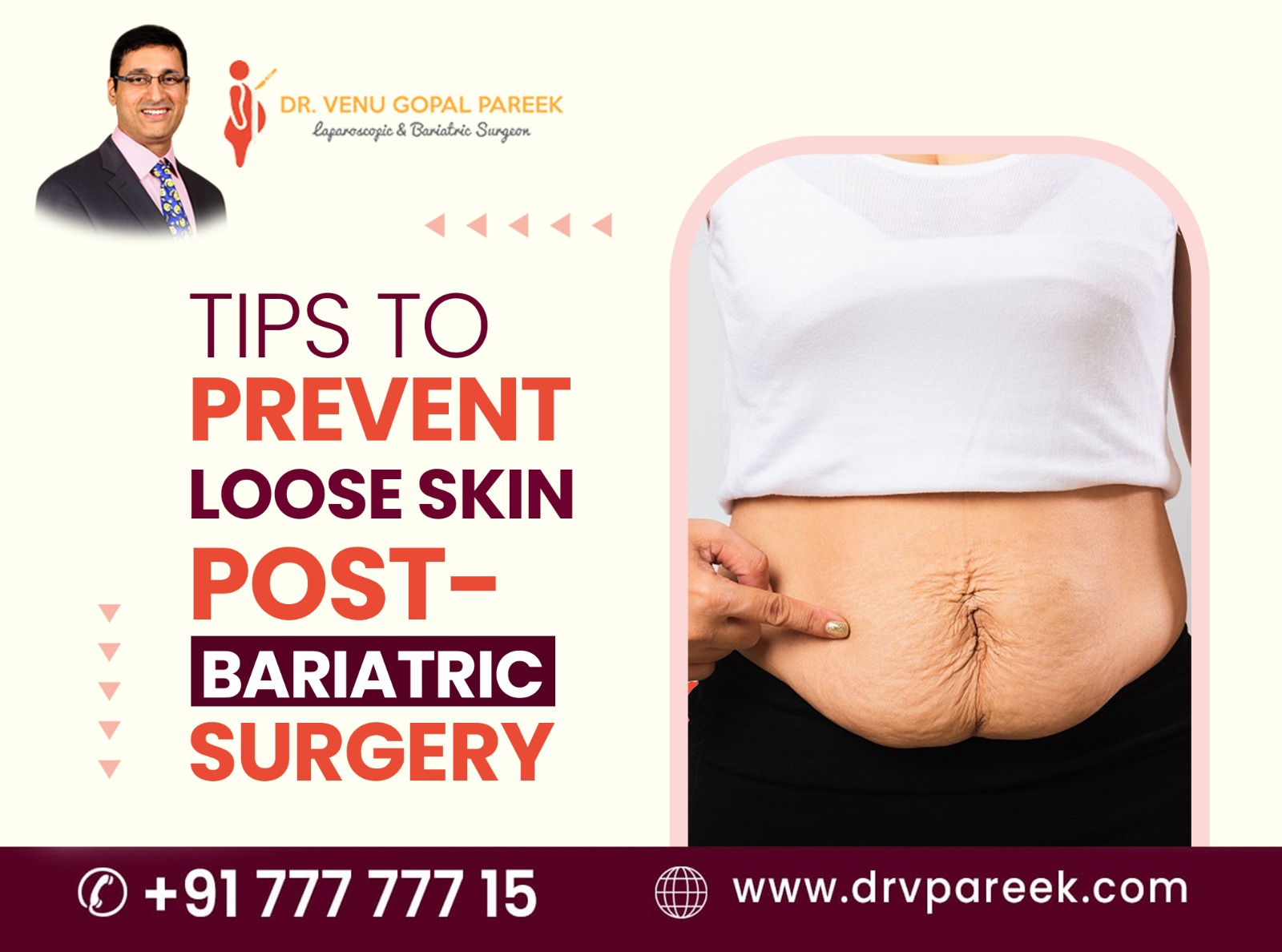
Skin disorder due to vitamin deficiency post-bariatric surgery: diagnosis and treatment?
Obesity, or overweight, is a global public health issue as it affects nearly 300 million people around the world. Bariatric surgery is a transformational surgery that helps people struggling with obesity because the procedure offers exceptional weight loss results and health benefits. Bariatric surgery is undoubtedly a major surgery, and it is classified into three types: restrictive procedures, malabsorptive procedures, and a combination of the two, with malabsorptive procedures involving anatomical changes to the digestive system. As we know, any major surgery comes with some risks and complications, which also applies to bariatric surgery.
One such risk is skin problems, which are mainly caused by vitamin deficiencies. Bariatric surgery is best known for shedding excess weight and improving overall health. Certain bariatric surgeries mess up the ability of your body to absorb essential vitamins and minerals from the food you consume, which may lead to dermatological issues. However, these skin disorders can be treated but require careful diagnosis. In this blog, let’s take a look at the common skin disorders caused by vitamin deficiency after bariatric surgery, along with their diagnosis and treatment. empowering individuals to nourish and care for their skin on their weight loss journey.
Understanding Skin Disorders Post-Bariatric Surgery:
Malabsorptive bariatric procedures, such as duodenal switch (BPD/DS), biliopancreatic diversion (BPD), and gastric bypass, also known as Roux-en-Y gastric bypass (RYGB), may cause malabsorption after surgery. This is because these procedures involve changing regions of the small intestine, like reducing the size of the stomach and diverting biliopancreatic secretions, which makes it hard to absorb vital nutrients, including vitamins and minerals, from the food consumed. In such cases, doctors may suggest vitamin supplements.
However, this malabsorption can lead to skin disorders because certain key nutrients, like vitamins A, D, E, and K, along with zinc and protein, which are vital for skin health, are not absorbed. Ignoring these nutrient supplements might compromise the integrity and function of your skin, which can lead to various dermatological issues.
The following are some of the common skin disorders caused by vitamin deficiencies:
Dermatitis
Dermatitis is an inflammatory condition of the skin that is mainly caused due to lack of vitamins B2, B3, D, E, etc. Post-bariatric surgery, people may experience dermatitis, which is characterized by dryness, itchiness, redness, and flakiness of the skin. So early diagnosis and intervention are important to prevent these skin problems.
Problems with wound healing
Proper wound healing or delayed wound healing is another complication observed following bariatric surgery. It results from a lack of certain vitamins, such as copper, vitamin C, etc. Lower quantities of these vitamins can reduce the ability of your body to rebuild damaged tissues, which eventually leads to poor or delayed wound healing.
Hyperpigmentation
Pigmentation is defined as colouring. The colour of our skin will be decided by the pigment cells in our body. Lack of Vitamin B12 might affect this pigmentation process, resulting in hyperpigmentation or darkening of certain skin areas. Patients undergoing bariatric surgery are at risk of hyperpigmentation.
Changes in hair and nails
The skin condition can also affect other structures, like nails and hair, that are beneath the skin’s surface. Vitamin deficiencies, especially protein (known as energy-protein malnutrition (EPM)), might change your hair texture, thickness, and growth, as well as make your nails brittle and pale. People might observe these changes after bariatric surgery.
Skin disorder diagnosis after bariatric surgery:
Post-bariatric surgery diagnosis of skin disorders caused by vitamin deficiency requires a thorough evaluation of the patient’s medical history, symptoms, and the results of physical examination and lab tests. Important steps in the diagnosis procedure consist of:
Clinical Assessment
A complete physical examination of the skin will be carried out by the dermatologist to identify potential issues with the skin, such as dryness, redness, inflammation, or changes in skin colour.
Evaluation of nutritional levels
Doctors may order blood tests to evaluate the levels of vital nutrients, which include vitamins A, C, D, E, and K, along with zinc, protein, etc. Based on the test results, doctors guide the patients regarding treatment decisions.
Skin biopsy
In some cases, a skin biopsy might be necessary, followed by the procedure of taking tissue samples for microscopic examination. This biopsy can help diagnose or rule out some underlying skin disorders.
Treatment of skin disorders caused after bariatric surgery:
The main goal of treating vitamin deficiency-related skin disorders is to address underlying nutrient deficiencies, which include:
Nutritional supplementation
Correcting vitamin and mineral imbalances can help restore skin health. Doctors recommended vitamin and mineral supplements, which may include oral or injectable forms of vitamins A, C, D, E, and K, along with zinc, protein, iron, and protein supplements. The dosage of supplementation will be different based on the patient’s needs, according to the results of the lab tests.
Topical skin treatments
Using moisturizers, emollients, and corticosteroid creams are some of the topical skin treatments that may be suggested to relieve symptoms like skin dryness, itching, inflammation, etc. These treatments focus on reducing discomfort by hydrating the skin and restoring its natural functions.
Dietary changes
Along with supplementation, your diet may need to be modified to ensure sufficient vitamin and mineral intake. Patients may be suggested to follow a diet rich in vegetables and fruits, as well as whole grains, lean protein, and healthy fats. Avoid processed, sugary, and high-fat foods to prevent malabsorption and improve the health of your skin.
Hydration
To maintain good skin health, proper hydration is very important. So it is important to drink plenty of water daily to maintain the skin’s hydration and avoid dryness.
Sun Protection
Avoid exposing your skin to sunlight, especially if you have skin problems like dermatitis or hyperpigmentation. Use sunscreen and wear protective clothing if you want to go out, especially during peak hours.
Skin disorders caused after bariatric surgery due to malnutrition are common, and they require proper diagnosis and treatment. However, if you are obese and looking for the best bariatric surgeon in Hyderabad, consult Dr. Venugopal Pareek, one of the best weight loss surgeons who can guide you to optimize nutritional deficiencies post-bariatric surgery. He always educates patients and provides individualized treatment plans to achieve optimal outcomes in their weight loss journey.







